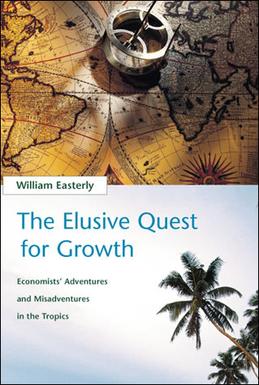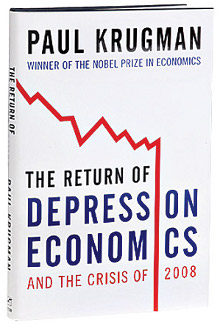
In the economics study of the public sector, economic and social development is the process by which the economic well-being and quality of life of a nation, region, local community, or an individual are improved according to targeted goals and objectives.
Development economics is a branch of economics which deals with economic aspects of the development process in low- and middle- income countries. Its focus is not only on methods of promoting economic development, economic growth and structural change but also on improving the potential for the mass of the population, for example, through health, education and workplace conditions, whether through public or private channels.
In economics, the Dutch disease is the apparent causal relationship between the increase in the economic development of a specific sector and a decline in other sectors.

A landlocked country is a country that does not have territory connected to an ocean or whose coastlines lie on endorheic basins. There are currently 44 landlocked countries and four landlocked de facto states. Kazakhstan is the world's largest landlocked country while Ethiopia is the world's most populous landlocked country.

Christian Aid is the relief and development agency of 41 Christian churches in the UK and Ireland, and works to support sustainable development, eradicate poverty, support civil society and provide disaster relief in South America, the Caribbean, Africa and Asia.
Aid effectiveness is the degree of success or failure of international aid. Concern with aid effectiveness might be at a high level of generality, or it might be more detailed.
The resource curse, also known as the paradox of plenty or the poverty paradox, is the phenomenon of countries with an abundance of natural resources having less economic growth, less democracy, or worse development outcomes than countries with fewer natural resources. There are many theories and much academic debate about the reasons for and exceptions to the adverse outcomes. Most experts believe the resource curse is not universal or inevitable but affects certain types of countries or regions under certain conditions.

In international relations, aid is – from the perspective of governments – a voluntary transfer of resources from one country to another.
The landlocked developing countries (LLDC) are developing countries that are landlocked. The economic and other disadvantages experienced by such countries makes the majority of landlocked countries the least developed countries (LDCs), with inhabitants of these countries occupying the bottom billion tier of the world's population in terms of poverty. Outside of Europe, there is not a single highly developed landlocked country as measured by the Human Development Index (HDI), and nine of the twelve countries with the lowest HDI scores are landlocked. Landlocked European countries are exceptions in terms of development outcomes due to their close integration with the regional European market. Landlocked countries that rely on transoceanic trade usually suffer a cost of trade that is double that of their maritime neighbours. Landlocked countries experience economic growth 6% less than non-landlocked countries, holding other variables constant.

William Russell Easterly is an American economist, specializing in economic development. He is a professor of economics at New York University, joint with Africa House, and co-director of NYU’s Development Research Institute. He is a Research Associate of NBER, senior fellow at the Bureau for Research and Economic Analysis of Development (BREAD) of Duke University, and a nonresident senior fellow at the Brookings Institution in Washington DC. Easterly is an associate editor of the Journal of Economic Growth.

Ha-Joon Chang is a South Korean institutional economist, specialising in development economics. Chang is the author of several widely discussed policy books, most notably Kicking Away the Ladder: Development Strategy in Historical Perspective (2002). In 2013, Prospect magazine ranked Chang as one of the top 20 World Thinkers.

Sir Paul Collier, is a British development economist who serves as the Professor of Economics and Public Policy in the Blavatnik School of Government and the director of the International Growth Centre.
The phrase "greed versus grievance" or "greed and grievance" refers to the two baseline arguments put forward by scholars of armed conflict on the causes of civil war, though the argument has been extended to other forms of war, such as violent conflict in general, rebellion and insurgency, for example.
Environmental governance (EG) consist of a system of laws, norms, rules, policies and practices that dictate how the board members of an environment related regulatory body should manage and oversee the affairs of any environment related regulatory body which is responsible for ensuring sustainability (sustainable development) and manage all human activities—political, social and economic. Environmental governance includes government, business and civil society, and emphasizes whole system management. To capture this diverse range of elements, environmental governance often employs alternative systems of governance, for example watershed-based management.
The New Bottom Billion refers to the 960 million or so poor people who live in Middle Income Countries (MICs). Based on research by Andy Sumner, a Research Fellow at the Institute of Development Studies, the New Bottom Billion raises serious questions about Paul Collier’s original Bottom Billion thesis, particularly in relation to its claims regarding the geographical distribution of global poverty. While Collier argued that the Bottom Billion are to be found in the poorest 60 or so economies, Sumner's research shows that the majority of the world's poor actually live in MICs such as China, India, Nigeria and Indonesia. The New Bottom Billion therefore suggests that poverty is not just a Low Income Country (LIC) problem, and that further policy discussions are called for.
Conflict trap is a term to describe the pattern when civil wars repeat themselves.
Canadian mining in Latin America and the Caribbean began in the 20th century. Latin America and the Caribbean's vast resources give the region great geopolitical importance, attracting foreign interest for centuries. From the colonial race of European empires, to the multinationals of today's neoliberal capitalist world, this region continues to draw interest. Canada's involvement in Latin America increased dramatically since 1989 with several landmark negotiations and agreements. By 2009, the Canadian larger-company mineral exploration market in this region was valued at US$1.7 billion.

The Elusive Quest For Growth: Economists’ Adventures and Misadventures in the Tropics is a 2001 book by World Bank development economist William Easterly. Upon its release, the book received acclaim from such figures as Bruce Bartlett, Robert Solow, and Paul Romer, and has since become widely cited in the Economic Development literature.

The Return of Depression Economics and the Crisis of 2008 is a non-fiction book by American economist and Nobel Prize winner Paul Krugman, written in response to growing socio-political discourse on the return of economic conditions similar to The Great Depression. The book was first published in 1999 and later updated in 2008 following his Nobel Prize of Economics. The Return of Depression Economics uses Keynesian analysis of past economics crisis, drawing parallels between the 2008 financial crisis and the Great Depression. Krugman challenges orthodox economic notions of restricted government spending, deregulation of markets and the efficient market hypothesis. Krugman offers policy recommendations for the prevention of future financial crises and suggests that policymakers "relearn the lessons our grandfathers were taught by the Great Depression" and prop up spending and enable broader access to credit.
The Natural Resource Governance Institute (NRGI) is an independent nonprofit organization dedicated to improving countries' governance over their natural resources to promote sustainable and inclusive development. The headquarters of NRGI are based in New York.









